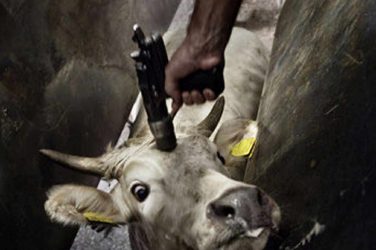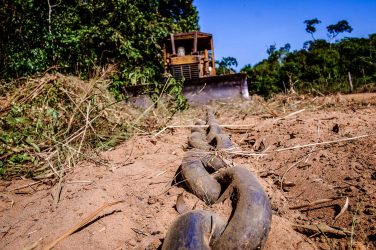 Dilma Rousseff, the president of Brazil, has hinted that if re-elected next month, she would not reappoint Finance Minister Guido Mantega. When reporters in Fortaleza asked Rousseff about Mantega’s role if she were re-elected, she responded: “A new election means a new government, a new team.”
Dilma Rousseff, the president of Brazil, has hinted that if re-elected next month, she would not reappoint Finance Minister Guido Mantega. When reporters in Fortaleza asked Rousseff about Mantega’s role if she were re-elected, she responded: “A new election means a new government, a new team.”
“I won’t speak of appointments. Do you want to know why? Because it brings bad luck to talk about something that hasn’t happened yet. Nevertheless, it will be a new government, it will require a new staff. I have no doubt about that,” she added.
Removing Mantega would likely be an attempt to appeal to the markets as the country’s stagnant economy has been a persistent problem for Rousseff, despite repeated attempts to stimulate growth, particularly through consumption.
In an interview with Folha de S. Paulo, presidential aides said that Dilma Rousseff’s speech in the state of Ceará was part of a “process” to bring her government closer to the business sector and that it does suggest a change to the financial team is impending, if the current president faces reelection.
Mantega has been in charge since 2006 and is the minister to have held the longest office in the country during the democratic period. Rousseff has been pressured by former president Luiz Inácio Lula da Silva to signal changes to Brazil’s economic policy in the event of a second mandate, in order to get business support.
Last year Lula suggested Guido Mantega to be replaced, which Dilma promised to assess, an advice she ended up not taking.
Marcos Troyjo, director of the BRICLab at Columbia University said that Rousseff and her mentor Lula were likely looking for a new appointment in an attempt to appeal to the business sector and calm the markets.
“I don’t think that Dilma blames Mantega for the struggle of the economy, but I do think that she knows that she needs to signal change to the market and perhaps sufficient short-term change, in her view, will be achieved by replacing Mantega with someone else,” Troyjo said.
Rousseff is deeply unpopular with Brazil’s business and industry sectors, which have objected to her highly interventionist economic policies and failure to reform Brazil’s Kafkaesque tax code. Her economic record took an another blow last week when data showed that the Brazil slipped into recession during the first half of the year.
According to Troyjo, the Rousseff administration has been characterized by attempts to simply repeat and intensify economic policies that proved successful for Lula – combining a consumption-based growth model with insufficient reform and too much focus on domestic, rather than global, trade.
“They didn’t work partly because Dilma didn’t have a strong personality in the central bank, and Mantega has failed to produce growth, failed to control inflation and failed at forecasting too, making so many mistakes on what growth will be,” he said. “So the element of trust and predictability has simply withered away from the administration.”
Since Marina Silva’s entrance into the presidential race on August 20, following the death of Brazilian Socialist Party (PSB) candidate Eduardo Campos in a plane crash, Rousseff’s chances of winning the election have fallen. In response, bond and equity markets have rallied, expressing their discontent with the incumbent.
“The market really wants to see Dilma and her team go,” Troyjo said.
Marina Silva, the daughter of poor and illiterate rubber tapper from the Amazon, is expected to benefit from a fatigue many in Brazil feel for the political establishment as represented by Rousseff and Aécio Neves, whose parties have, between them, held power for the past 20 years.
Yielding to the demands of last year’s mass street protest movement, which is central to her campaign, Marina Silva has promised to direct 10% of the GDP to public health care, extend school hours and launch digital-democracy programs.
Silva has also promised to run for only one term – a canny proposal designed to appeal to Workers’ Party voters who are tired of Rousseff, but would like to see the still-wildly popular Lula return to the Planalto in 2018.
According to Rousseff, who announced the future change in her economic team in an interview with daily O Estado de S. Paulo, Mantega will opt to leave the post in October for “eminently personal” reasons.
“Guido has already told me that he cannot stay in the government for a second term due to personal reasons, which I ask you to respect,” she underlined.
The politician has been in the Finance Ministry since 2006, when he assumed during ex-president Luiz Inácio Lula da Silva’s second term in office. But the 65-year-old has been the focus of fierce criticism recently, with Brazil’s economic slowdown and an inflation level of 6.5% losing Mantega popularity.
Rousseff, meanwhile, faces a daunting battle against Socialist Party candidate Marina Silva, who looks set to be the head of state’s most dangerous rival in October’s polls.
According to recent opinion polls, Silva and Rousseff would tie a first round scheduled for October 5, with the former predicted to win by seven points in a theoretical run-off.
Mercopress







